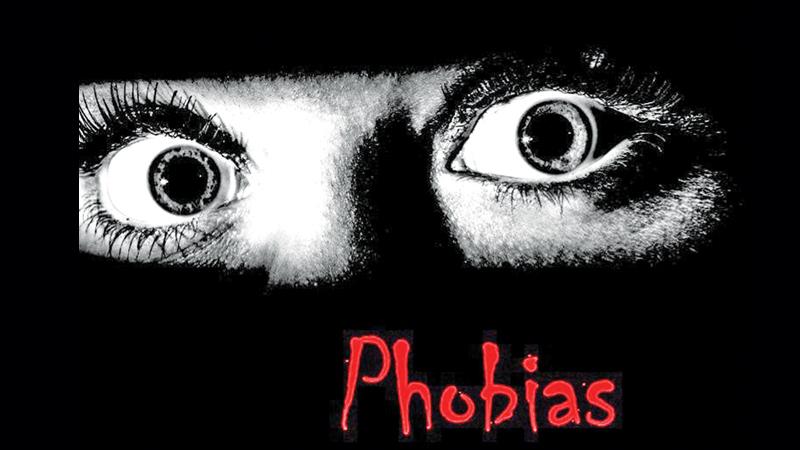
It is not easy moving through the world when you are terrified of darkness, spiders, clouds, thunder or closed spaces. The list of phobias keeps on expanding and what you know is just a drop in the ocean. I knew of a female colleague who was mortally scared of microbes. She used to wash her hands every now and then. After washing her hands she leaves the tap running for someone else to close it. The list of phobias appearing in a box shows the gravity of the problem.
A phobia can be defined as a fear, hatred or extreme dislike of something, especially, an irrational one. The term comes from the Greek word ‘phobos’ meaning ‘fear’. Up to now psychologists have listed more than 500 phobias or human fears. Some of them are pretty quirky and others can be deadly serious. Most of those who are subject to phobias do not know how to deal with them. You can imagine a man or woman scared of snakes, especially, cobras. However, there are some people who are scared of looking at the pictures of cobras appearing in books.
Categories
I knew of a student who used to staple together pages in a textbook to avoid flipping to a picture of a cobra. There was also a teacher who was so terrified of cats that she used to send one of her students into a classroom before entering it. Such temporary solutions to phobias are not of much help, because they never get rid of their phobias. However, science has provided lasting solutions to most of the terrible phobias.
Psychologists have divided phobias into three broad categories. The first category is social phobia which makes sufferers feel a paralyzing fear of human encounters. For instance, agoraphobia entails panic disorders. The sufferer is periodically blinded by an overwhelming fear for no apparent reason. Then there are specific phobias such as, xenophobia (fear of strangers or foreigners), nyctophobia (fear of darkness) and musophobia (fear of mice).
Psychologists say specific phobias are the easiest to treat because they are easily understood. A sufferer of a specific phobia is likely to have at least one phobic close relative. Other causes include childhood traumas, dog bites, or house fires. Such incidents can trigger a phobia. Michelle Craske, a professor and director at the University of California, Los Angeles’ Anxiety Disorders Behavioural Program, says, “Two people can go through the same traumatic event, but the high strung, emotionally sensitive person is more vulnerable to fear.”
Sometimes, children embrace secondhand fears when they see how their parents or elders react to exaggerated fears of a cockroach or a gecko. Neuroscientists have performed scans on the fear centres of volunteers’ brains. When the volunteers were told that they could expect an electric shock, they felt extreme fear. What is more, they felt it as an actual experience.
What happens when you are overwhelmed by a phobia? In normal circumstances, a phobic would experience sweating, a racing heart, difficulty in breathing, and a fear of imminent death. Such a person is most likely to flee from the situation. Psychotherapists gradually introduce phobic objects to their patients. For instance, if you are scared of geckos, a picture of a gecko would be shown to you. Later you would be shown a real gecko which is a harmless creature. Then the patient comes face to face with reality paving the way for a gradual release from the phobia.
Therapist
It is not easy for a phobic person to get over his problem even with the help of a therapist. This is because a phobic can become non-responsive to the object of his phobia, just as we become habituated to traffic noise or garbage smell. The good news is that about 80 per cent of patients can get over their phobias under the supervision of a therapist.
Social phobia or the fear of social encounters may occur at large parties. If not treated at the early stages, the sufferer may grow increasingly isolated. This might lead to alcoholism and depression. In such cases, group therapy with other fellow sufferers would produce better results. In extreme cases, therapy is done in combination with drugs.
Like all other emotional disorders, phobias can cause a double dip of psychic pain. One is caused by the condition and the other due to the shame of having the problem. There have been important breakthroughs in clinical psychology as far as phobias are concerned. A practical advice given by a clinical psychologist is to face the object of fear boldly. If you try to flee from the situation, the phobia will remain part of your life.
Well-known phobias
Achluophobia (fear of darkness)
Acrophobia (fear of heights)
Agoraphobia (fear of open spaces)
Ailurophobia (fear of cats)
Androphobia (fear of men)
Aquaphobia (fear of water)
Arachnophobia (fear of spiders)
Bacilliphobia (fear of microbes)
Basophobia (fear of walking)
Bibliophobia (fear of books)
Cancerphobia (fear of cancer)
Canophobia (fear of dogs)
Claustrophobia (fear of closed
spaces)
Demonophobia (fear of demons)
Demophobia (fear of crowds)
Dromophobia (fear of crossing
streets)
Eisoptrophobia (fear of mirrors)
Electrophobia (fear of electricity)
Graphophobia (fear of writing)
Gynophobia (fear of women)
Haematophobia (fear of blood)
Herpetophobia (fear of reptiles)
Kakorraphiaphobia (fear of failure)
Keraunophobia (fear of thunder)
Logophobia (fear of words)
Mechanophobia (fear of machinery)
Musicophobia (fear of music)
Musophobia (fear of mice)
Necrophobia (fear of corpses)
Nephophobia (fear of clouds)
Nyctophobia (fear of darkness)
Ophidiophobia (fear of snakes)
Pathophobia (fear of diseases)
Phasmophobia (fear of ghosts)
Thanatophobia (fear of death)
Toxiphobia (fear of poison)
Xenophobia (fear of strangers or foreigners)
Zoophobia (fear of animals)
